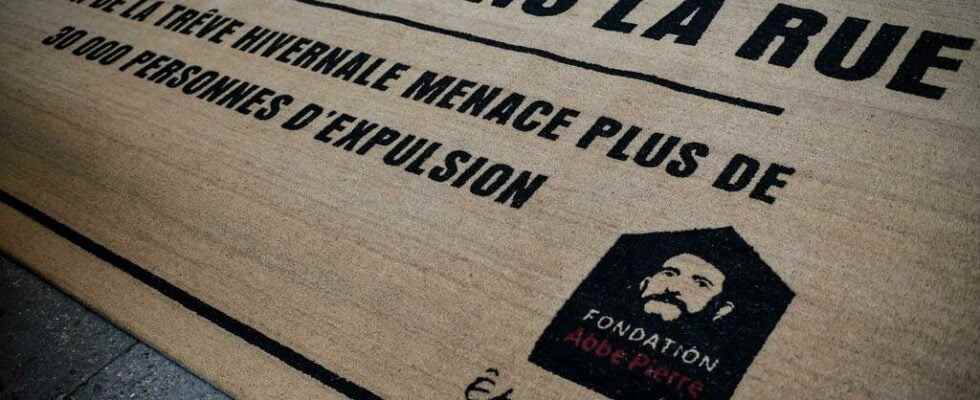The Abbé Pierre Foundation presents this Wednesday, February 2, 2022 its 27th report on poor housing. A report that takes stock of Emmanuel Macron’s five-year term, while nearly four million people are affected by this scourge.
For the Abbé Pierre Foundation, housing has indeed been the “ poor relation of the quinquennium “.
As proof, the share of public spending on housing. While in 2017 it was equivalent to 1.82% of GDP, in 2020 it fell to 1.63%.
A significant drop which, according to the Foundation, testifies to the disengagement of the State on this file. Because according to her, since 1984, the public effort has never been so weak.
APLs and social housing weakened
In the sights of the Foundation: the decline in personalized housing assistance (APL). With a reduction of five euros in the monthly amount of aid and the new allocation calculation, the government saved more than one billion euros in 2021.
Another black spot on the balance sheet: the planing of the budget allocated to social housing. Between 2018 and 2022, HLM organizations were deprived of six billion euros.
A decrease to which is added that of the number of social housing units authorized each year: 104,800, significantly less than the annual 150,000 claimed by the Foundation.
Finally, the Foundation denounces a policy that is too timid in terms of rent control. She also deplores the 600,000 unfit housing units that are still not supported.
In short, so many budget cuts which, according to the Abbé Pierre Foundation, reinforce inequalities, even as the French suffer the full brunt of the devastating effects of Covid on housing.
Indeed, with a slump in the production of housing in all sectors, and the rise in real estate, the working and middle classes are finding it increasingly difficult to access purchases and rentals.
Homelessness has doubled in ten years
Poor housing in France represents four million people, including 300,000 who live on the street. A figure that has doubled in 10 years!
In its report, the Foundation also mentions 22,000 people who live in an informal living space, such as a squat or a shanty town.
And, in addition to this extremely fragile first circle, around 10 million people are faced with unpaid rent, overcrowding or even cold weather in their homes, because they are unable to cope with the increase in heating costs for example.
In total, nearly 15 million people are affected in one way or another by the housing crisis.
Among them: the middle classes stuck between the evolution of prices and the stagnation of their income, the working classes increasingly remote from city centers, and then there are also the students, hit hard by the Covid crisis and who live in increasingly worrying precariousness.
Insufficient aid schemes for the most deprived
However, the five-year term has also allowed some progress. Particularly in terms of energy renovation, with the replacement of the tax credit by “Ma Prime Rénov'”, which avoids households having to advance state aid.
Another system hailed by the Abbé Pierre Foundation: “housing first”, launched in 2018 for the homeless. Thanks to it, 280,000 people have been allocated permanent housing.
But these advances remain insufficient, according to the Foundation, given the scale of the housing crisis. Main item of expenditure for the French, housing must be a priority for candidates in the presidential election.
To deal with the scale of the housing crisis, the Abbé Pierre Foundation offers some solutions: rent control, end of power cuts, solidarity land, etc.
For example, to curb the rise in prices, it proposes a stricter rent control, a universal guarantee and a rent tax “ abusive » and the most expensive real estate transactions.
►From the same author: The coronavirus and its worrying consequences on poor housing
Another measure to protect the most disadvantaged, the end of power cuts in main residences and more aid for the energy renovation of buildings.
And to absorb the divide between landlords and tenants “, promote solidarity land by allowing disadvantaged households to become owners by paying their rent and also increasing inheritance rights.
Measures amounting to an additional 10 billion euros per year. A return to the situation of 2012, when the government allocated 2% of GDP to housing.
